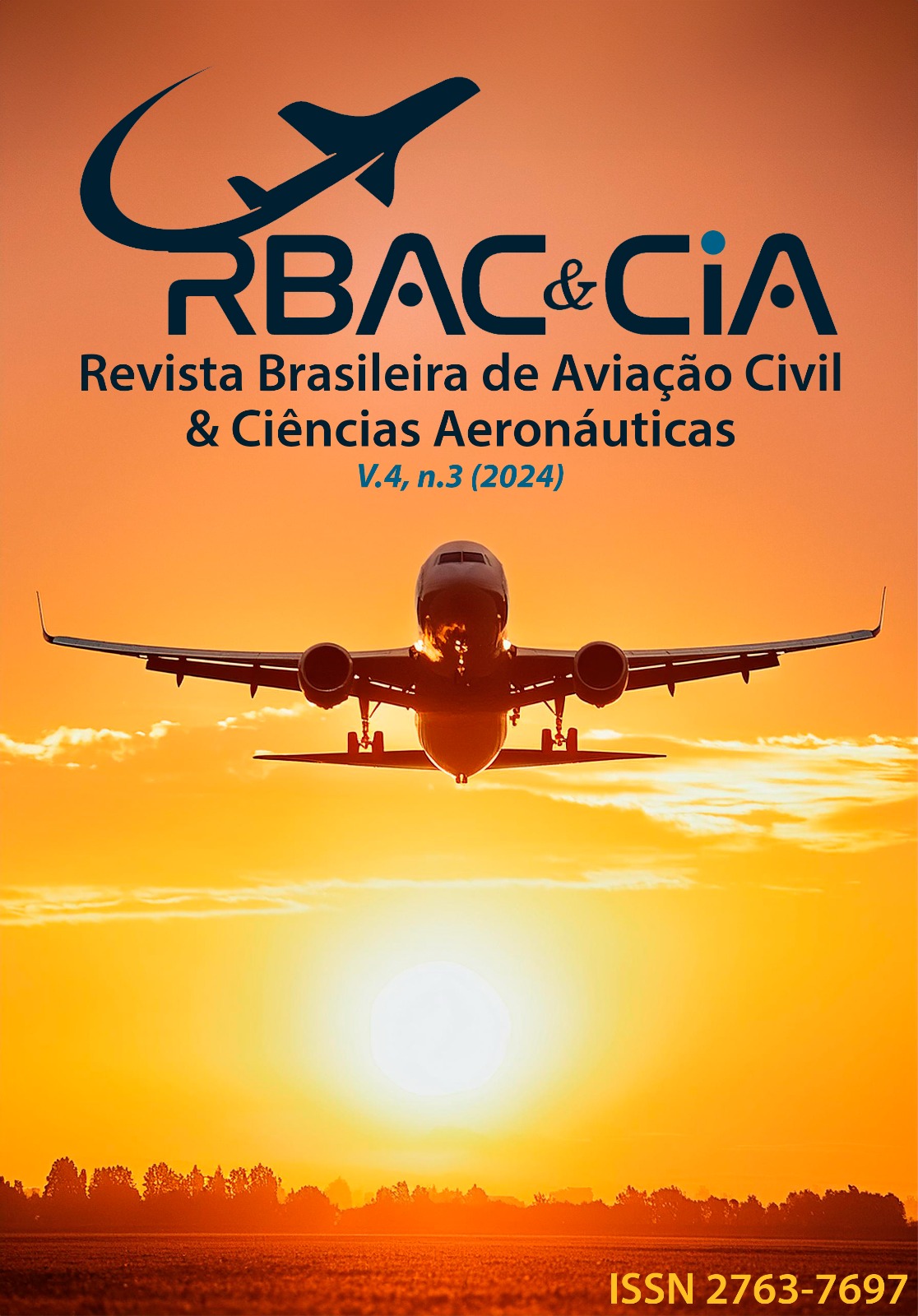- NARCISISMO NA AVIAÇÃO: RELAÇÕES DE PODER ABUSIVAS NO COCKPIT NARCISSISM IN AVIATION: ABUSIVE POWER RELATIONSHIPS IN THE COCKPIT
Conteúdo do artigo principal
Resumo
Este estudo aborda as dinâmicas de relacionamento potencialmente abusivas que podem ocorrer dentro do ambiente restrito do cockpit de aeronaves, investigando a possível correlação entre tais dinâmicas e acidentes aéreos. Pesquisas sugerem que em alguns casos a presença de um transtorno de personalidade narcisista por parte do líder da tripulação pode estar associada a esses eventos. A pesquisa, de cunho qualitativo e quantitativo, investiga, assim, o impacto que comandantes com traços narcisistas exercem na segurança das operações aéreas, negligenciando aspectos primordiais do gerenciamento de recursos da tripulação (CRM), como a comunicação, podendo resultar em fenômenos como o safety silence. Utilizando-se de uma abordagem bibliográfica e documental, o estudo analisa comportamentos tóxicos de liderança, como supervisão abusiva, liderança autoritária e narcisismo. Diante dos indicadores levantados na literatura pesquisada, sugere-se que o narcisismo está ligado ao otimismo na percepção de risco na aviação, o que pode comprometer a segurança de voo. Além disso, apurou-se que aspectos como questionar a autoridade de comandantes podem estar associados ao receio que permeia relações abusivas dentro do cockpit. Ademais, destacou-se a relação entre a personalidade e o desempenho na aviação, sugerindo que traços individuais podem influenciar a ocorrência de acidentes ou incidentes durante os voos e que líderes manipuladores em companhias aéreas prejudicam a segurança e elevam os custos da companhia por fatores diversos. Esses insights apontam para a complexidade da segurança na aviação, que envolve fatores individuais, culturais e organizacionais, o que demanda o aprimoramento da integração de avaliações psicológicas nos processos de seleção e acompanhamento dos profissionais da aviação, incluindo métodos adicionais para identificar potenciais distúrbios comportamentais.
ABSTRACT
This study addresses the potentially abusive relationship dynamics that can occur within the restricted environment of the aircraft cockpit, investigating the possible correlation between such dynamics and aviation accidents. Research suggests that in some cases the presence of a narcissistic personality disorder on the part of the crew leader may be associated with these events. The research, of a qualitative and quantitative nature, thus investigates the impact that commanders with narcissistic traits have on the safety of air operations, neglecting essential aspects of crew resource management (CRM), such as communication, which can result in phenomena such as safety silence. Using a bibliographic and documentary approach, the study analyzes toxic leadership behaviors, such as abusive supervision, authoritarian leadership and narcissism. Given the indicators raised in the researched literature, it is suggested that narcissism is linked to optimism in the perception of risk in aviation, which can compromise flight safety. Furthermore, it was found that aspects such as questioning the authority of commanders may be associated with the fear that permeates abusive relationships within the cockpit. Furthermore, the relationship between personality and performance in aviation was highlighted, suggesting that individual traits can influence the occurrence of accidents or incidents during flights and that manipulative leaders in airlines harm safety and increase the company's costs due to various factors. These insights point to the complexity of aviation safety, which involves individual, cultural and organizational factors, which demands the improvement of the integration of psychological assessments in the selection and monitoring processes of aviation professionals, including additional methods to identify potential behavioral disorders.
Downloads
Detalhes do artigo

Este trabalho está licenciado sob uma licença Creative Commons Attribution 4.0 International License.
